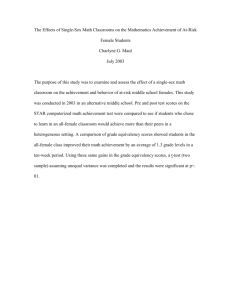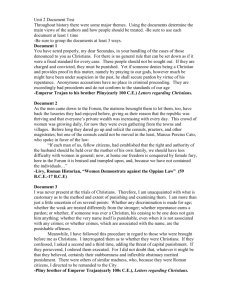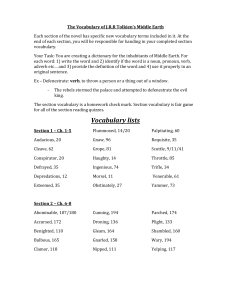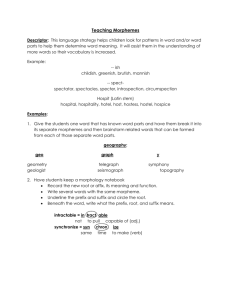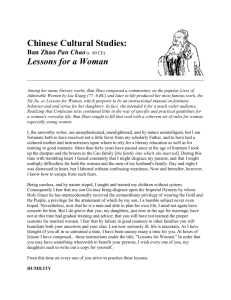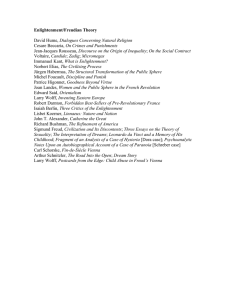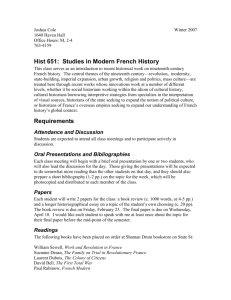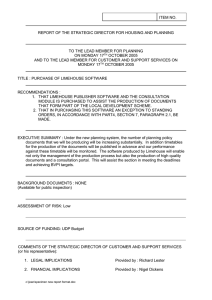EN278: Ends and Beginnings Term 3, 2015/16
advertisement
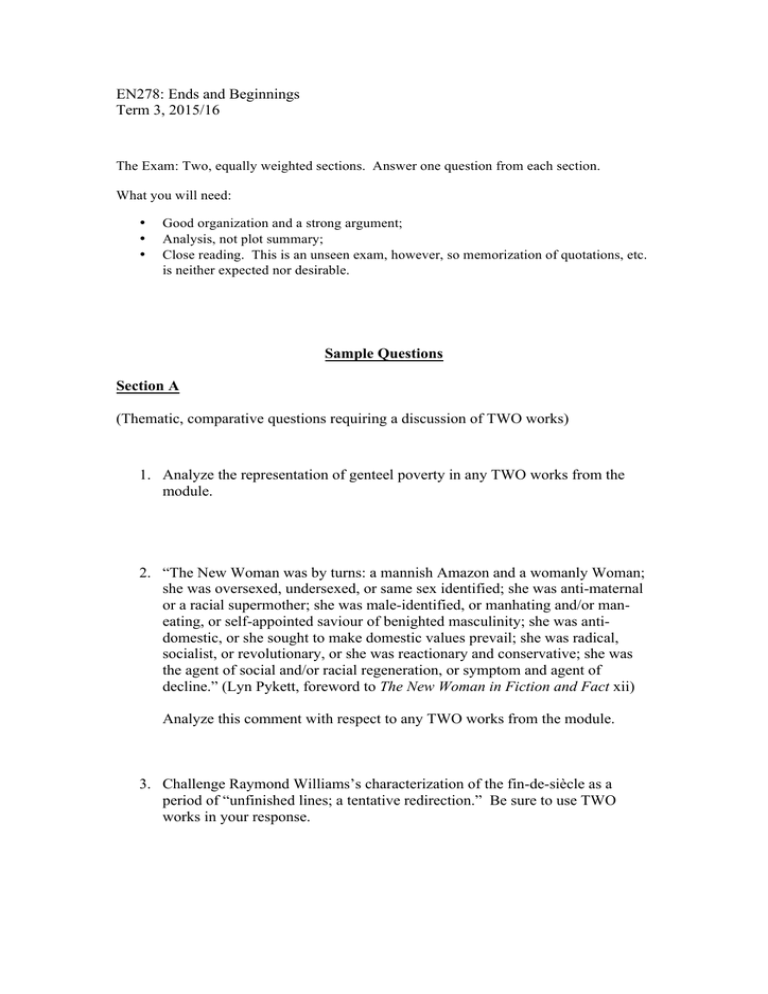
EN278: Ends and Beginnings Term 3, 2015/16 The Exam: Two, equally weighted sections. Answer one question from each section. What you will need: • • • Good organization and a strong argument; Analysis, not plot summary; Close reading. This is an unseen exam, however, so memorization of quotations, etc. is neither expected nor desirable. Sample Questions Section A (Thematic, comparative questions requiring a discussion of TWO works) 1. Analyze the representation of genteel poverty in any TWO works from the module. 2. “The New Woman was by turns: a mannish Amazon and a womanly Woman; she was oversexed, undersexed, or same sex identified; she was anti-maternal or a racial supermother; she was male-identified, or manhating and/or maneating, or self-appointed saviour of benighted masculinity; she was antidomestic, or she sought to make domestic values prevail; she was radical, socialist, or revolutionary, or she was reactionary and conservative; she was the agent of social and/or racial regeneration, or symptom and agent of decline.” (Lyn Pykett, foreword to The New Woman in Fiction and Fact xii) Analyze this comment with respect to any TWO works from the module. 3. Challenge Raymond Williams’s characterization of the fin-de-siècle as a period of “unfinished lines; a tentative redirection.” Be sure to use TWO works in your response. Section B Questions about a single text. These questions are designed to be enjoyable. However, you are not being marked on your creativity, but on the strength of your analysis and your familiarity with the themes, topics, and texts covered by the module. 1. Imagine you are a visitor to London from China in the 1910s, and you read the stories in Thomas Burke’s bestselling Limehouse Nights. Write a letter to the author in which you challenge his depiction of Chinese immigrants. 2. You want to produce an anthology of writing about childhood in the period 1880-1914. Explain your rationale for including any TWO of the primary texts from this module (or, in the case of longer works, selections thereof) in your edited collection. 3. You are directing a new production of Ghosts. You have decided to have an all-female cast. What effect would this decision have on your interpretation and staging of the play?
